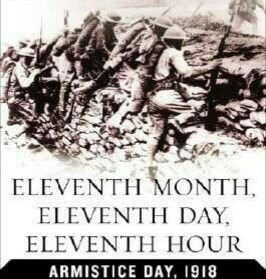In the summer of 1914, the nations of Europe went willingly to war. They believed they had no other choice but to "dialogue and negotiate and by other means". They confidently expected a short war leading to a decisive victory. Such a war, they believed, would "clear the air ," and European society would be able to go on as before.
These expectations were almost totally mistaken. The First World War was long, indecisive( remember the trench warfare and the battle of Somme of 1916), and tremendously destructive. To the shell- shocked generation of survivors, it was known simply as the Great War.
The war began (i.e the trigger cause) with a few shots fired by a single assassin (Gavrilo Princip). Due to entangling alliances( Triple alliance and Triple Entente), within months, much of Europe was at war. While the United states and her mixed population was reluctant to get involved, powerful forces including German submarines and American commercial interests pulled the nation into the battle in 1917.
On November 11, 1918, the war came to an end with the unilateral acceptance of truce and the cessation of hostilities by Germany and by extension, the Central Powers. As such, on this day in 1918, Germany signed an armistice agreement with the Allies in a railroad car in the forest of Compiègne in France, hence the name World Armistice Day.
Armistice Day is commemorated every year on 11 November to mark the armistice signed between the Allies of World War 1, and Germany at Compiègne, France, for the cessation of hostilities on the Western Front of World War 1, which took effect at eleven o'clock in the
morning—the "eleventh hour of the eleventh day of the eleventh month" of 1918. The date was declared a national holiday in many allied nations, and coincides with Remembrance Day and Veterans Day, public holidays.
In 1919 at the Paris Peace Conference,Germany was accused of causing the war as evident in Article 231 of the Treaty of Versailles- the so-called War Guilt Clause. However, the Paris Peace Conference consisted of a number of separate treaties. While Germany was dealt with in the Treaty of Versailles (what the Germans considered as a stern peace, a humiliation and a Diktat); Austria was dealt with in the Treaty of St. Germain, and Hungary in the Treaty of Trianon; Bulgaria in the Treaty of Neuilly; Turkey in the Treaty of Sèvres.
Back here in Nigeria, November 11, popularly known as "eleven eleven" is always a brutal day in high schools. It's a day of war between the senior students and the junior students. No one wants to be in school on this very day because it's a day for cutting the tails of the junior students in the lower grade characterised by far too excessive flogging and bullying.
But why is the day that brought a great war to an end, be remembered by Nigerian students in such manner?
Is there any nexus between November 11, 1918 and what has been going on in Nigerian schools in the same month and date? Or is there another interpretation of this deplorable act?
Drop your view!


